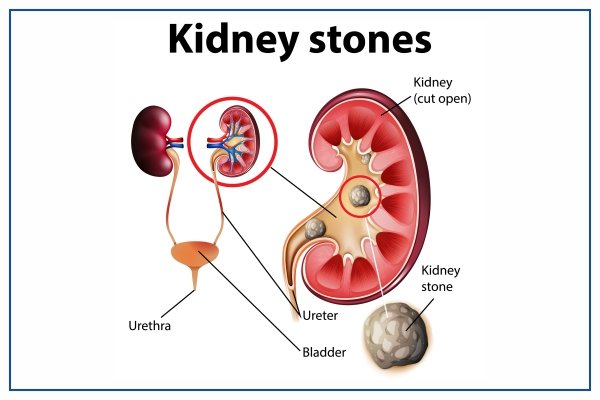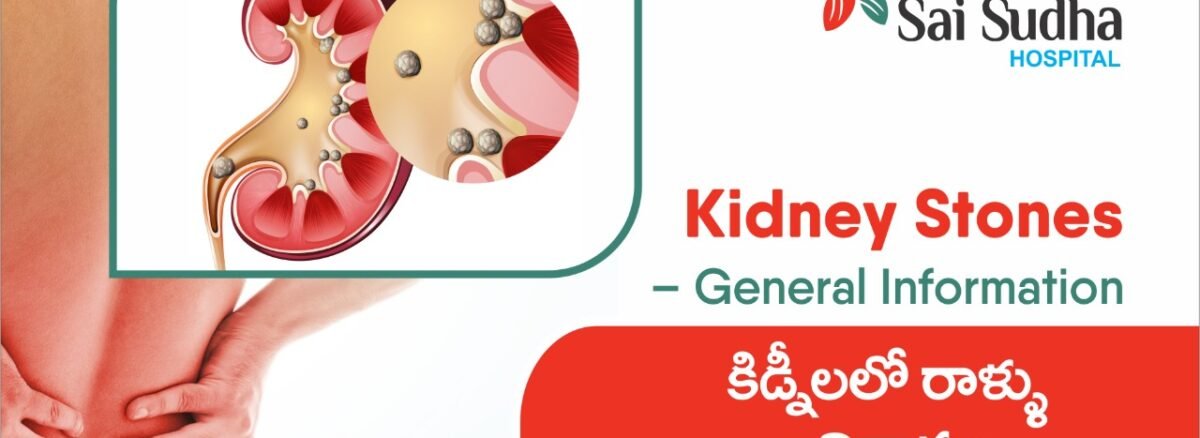- November 2, 2022
- brandingssh
- Comment: 0
- blog, Urology
How do they form?
- Dietary changes like over-meat consumption, excess of salt intake, and inadequate water intake are the primary reasons
- Genetic predisposition
What are the common types of stones?
- Uric acid stones
- Calcium oxalate stones
- Infection-related stones
What are the symptoms of renal stones?
It depends on the size and location of the stone
Small stones in the kidneys do not produce any symptoms
- When stone size is more than 1cm it may cause some discomfort in the loin area
- Stones in ureter (small tube which transports urine from the kidney into the bladder) may obstruct the urine flow and cause severe pain, vomitings, blood in urine, fever etc.
- When the stone is in urinary bladder (which stores urine) you may experience burning of urine, blood in urine, urgency, frequent urine episodes or sometimes it may completely block urine ( its an emergency if you can’t pass urine)

How to identify kidney stones?
- Symptoms typical of kidney stones like -Pain from loin to groin, vomiting, urinary complaints
- An ultrasound scan of the abdomen will give good information
- NCCT KUB area is the best modality in identifying stones. It will precisely tell the size and location of the stone.
How to manage kidney stones?
- It depends on various factors like stone size, if it is causing any obstruction to urine passage and other issues like creatinine, WBC counts etc.
- Asymptomatic stones can be managed with medications and stone-dissolving syrups
- If stones are large and symptomatic various minimally invasive surgical modalities are available to deal with renal stones

